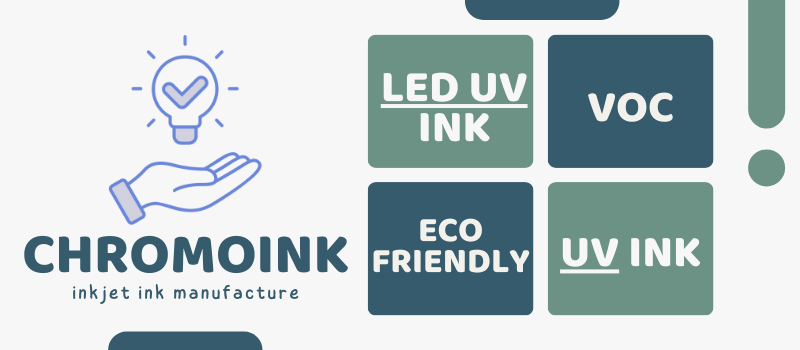
In today`s digital
printing market, the choice of ink plays a crucial role in the production
process, final product quality, and the company’s environmental image. UV ink
and LED UV ink are currently the most popular choices, each with unique
characteristics and application advantages. This article will analyze these two
types of inks from multiple dimensions and provide guidance on how to choose
the right one.
1. Overview of
UV Ink
UV ink is a type of ink that cures rapidly under ultraviolet light, with the
following features:
• Fast curing: UV ink can cure within seconds, greatly improving
production efficiency.
• Strong adhesion: It provides strong adhesion to various substrates
(such as plastic, metal, and paper), making it suitable for various
applications.
• Excellent color performance: It delivers vivid and saturated colors,
enhancing the visual appeal of printed materials.
Advantages and
Disadvantages of UV Ink
|
Characteristic
|
UV Ink
|
|
Advantages
|
Fast curing, improving production efficiency
|
|
Strong adhesion, suitable for various substrates
|
|
Excellent color performance, achieving vibrant printing effects
|
|
Strong water and abrasion resistance, enhancing product durability
|
|
Disadvantages
|
May contain volatile organic compounds (VOCs), impacting the environment
|
|
Requires specialized UV lamps for curing, increasing equipment needs
|
|
The curing process may generate high heat, potentially damaging certain materials
|
2. Overview of
LED UV Ink
LED UV ink is an ink that is cured using LED lamps, with the following key
characteristics:
• Low energy consumption: LED UV ink uses less energy during the curing
process, making it suitable for energy-efficient production.
• Heat-sensitive substrates: Due to the lower heat generated by LED
lamps, heat-sensitive substrates (such as certain plastic materials) are less
likely to be damaged.
• Environmental benefits: The curing process of LED UV ink produces
almost no volatile organic compounds (VOCs), minimizing its environmental
impact.
Advantages and
Disadvantages of LED UV Ink
|
Characteristic
|
LED UV Ink
|
|
Advantages
|
Low energy consumption, environmentally friendly
|
|
Minimal impact on heat-sensitive substrates, suitable for a wide range of applications
|
|
Almost no VOC emissions
|
|
Long lifespan of LED lamps, reducing maintenance costs
|
|
Disadvantages
|
Higher initial equipment investment
|
|
Color performance on some substrates may not be as good as UV ink
|
|
Limited availability of certain special colors
|
4. How to Choose
the Right Ink
Application
Needs
Before choosing an ink, it’s essential to clarify your specific application
needs:
• Printing type: Different printing types (such as packaging, labeling,
and advertising) have varying performance requirements for inks.
• Substrate choice: Consider the substrates you’re using, as some inks
may exhibit significant differences in adhesion and performance on certain
materials.
Environmental
Impact
With the growing awareness of environmental issues, many companies factor in
the environmental impact when selecting inks:
• VOC emissions: If your company must comply with strict environmental
standards, LED UV ink may be the better option.
• Sustainability: Choosing eco-friendly materials and processes can
enhance your company’s brand image and market competitiveness.
Cost
Considerations
• Initial investment: Compare the initial investment costs of different
inks and related equipment to ensure they fit within your budget.
• Long-term operational costs: Calculate the total cost of ink usage,
including the maintenance of curing equipment and energy consumption, to choose
the most cost-effective solution.
5. Conclusion
Both UV ink and LED UV ink have distinct characteristics and are suitable for
different production needs and market environments. Choosing the right ink can
not only improve print quality but also increase production efficiency and
reduce environmental impact. It is recommended that companies make informed
decisions based on their needs, environmental considerations, and budget to
promote sustainable business growth.

